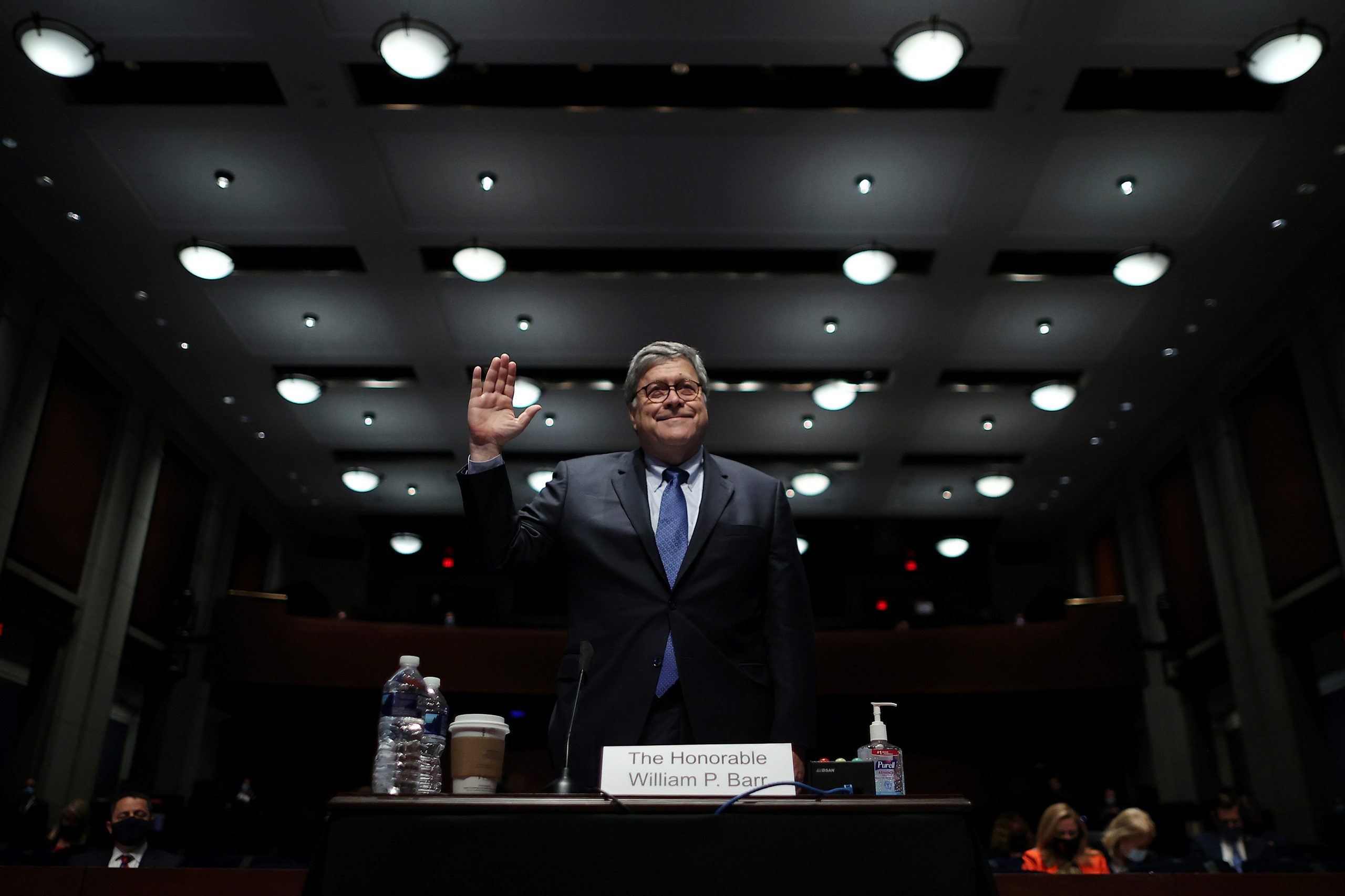Bill Barr Understands Church and State

U.S. Attorney General Bill Barr’s Tuesday appearance before the House Judiciary Committee produced more web-worthy soundbites than any other in recent memory—even the joint appearance, the very next day, of four Big Tech CEOs before the subcommittee on antitrust. But one of the most compelling moments of the testimony, clocking in at just under five hours total, has been overlooked in favor of such viral bits as Democrat committee members obsessively “reclaiming their time” whenever the attorney general attempted to answer a question.
Jamie Raskin (D-MD), simultaneously conflating two separate incidents and misconstruing each, asked Barr, “Did I hear you correctly to say that the purpose of unleashing this federal agent assault with tear gas and rubber bullets and pepper spray on 2,000 nonviolent protestors in Lafayette Square was to secure and defend the [sic] St. John’s Episcopal Church?”
Responding to the more famous of the two incidents Raskin seems to have been addressing here—the June 1st clearing of protesters in Lafayette Square, which closely preceded President Trump’s walking across the square to visit St. John’s—Barr made clear that he had said no such thing, and reiterated his earlier testimony that Lafayette Square was cleared as part of a preexisting, precautionary plan to extend the White House security barrier out one street further.
After a brief exchange it became apparent that Raskin was operating from some vague and muddled memory of Barr’s reference (made a mere two hours earlier) to the fire set inside St. John’s by the ubiquitous mostly peaceful protestors, the night prior to the Lafayette Square incident: had the government not taken action, as Barr suggested, the historic church may not be standing today. Already committed to the bit and unwilling to let the facts get in the way, Raskin pressed on: “Okay, are you aware that the rector of the church, that the Episcopal ‘archbishop’ of Washington and the presiding ‘bishop’ of the Episcopal church nationally, along with the Catholic bishop of the Archdiocese of Washington all denounced this police assault on the civil rights and civil liberties of the people?”
The attorney general answered the non-question with a question of his own: “Did they do that before or after the fire was put out?”
Religion had been a recurring theme throughout the hearing—Democratic members of the committee were horrified that Barr had criticized some states’ stay-at-home orders for inordinate harshness against religious gatherings, and took him to task for sending advisory letters to the governors of the states in question. Bill Barr, they feared, was a bit too worried about religion. It’s a criticism that has popped up again and again since Barr returned to the post of attorney general last year, as in the now-infamous New Yorker profile panicking over Barr’s association with such nefarious institutions as the Catholic Information Center, a journal called The Catholic Lawyer, the Knights of Columbus, and the New York Archdiocese’s Inner-City Scholarship Fund. As late as last week, the nominally Catholic NCR was publishing frightened considerations that the attorney general might just be a little too Catholic.
But Barr’s answers in Tuesday’s hearing seemed almost entirely concerned with government and religion leaving each other alone. His church-shutdown concerns, he insisted, were entirely about neutrality, about religious institutions being treated equally to secular ones—and anyone observing in good faith would be hard-pressed to disagree. An executive order that allows daily trips to Walmart but not to Mass does, in fact, raise concerns pertinent to the attorney general of the United States.
Here, though, the attorney general did actually hint at a Church-state relationship: one in which the state “secures and defends”—to use Rep. Raskin’s bizarrely accusatory words—the Church, provides it with the space in which to freely operate, safe from fires and riots and (in a system with checks and balances like ours) even from the government itself. Barr is right that the Church would not be standing today without the actions of the government—not just on May 31st, but over 200 years.
The Church, of course, does not always recognize this service, much to Rep. Raskin’s rhetorical benefit: “All I know is that they denounced what you did,” the congressman charged, “and if you read what the ‘archbishop,’ the Episcopal ‘archbishop’ of Washington wrote, [she] said that using police force to clear non-violent protestors without notice in order to conduct this grotesque photo opportunity was antithetical to the principles of Christianity.”
We’re not meant to seriously believe that Jamie Raskin—a member of the House Pro-Choice Caucus and founder of the House Freethought Caucus who has never been or claimed to be a Christian—has any genuine commitment to “the principles of Christianity.” It’s cheap rhetoric—nothing more, nothing less. But Mariann Budde’s (the Episcopal “archbishop” referenced) attack on government service—supposedly on the basis of Christian principles—is harder to reason out. An explanation may lie in the answer to Mr. Barr’s question: she didn’t even arrive on the scene until long, long after the fire had been put out.
Comments